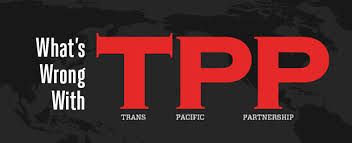Although the House of Representatives voted down legislation to “fast-track” trade deals through Congress – it appears the TPP may have already secured its future with millions in donations made to US Senators since the start of the year…
The Trans-Pacific Partnership (TPP) trade deal negotiations hit the mainstream over the past month with a US Senate approval of the controversial trade bill in late May.
As Washington leaders continue their show trial-like debate over the TPP, with the House voting against fast-tracking trade authority, the Washington Post disclosed that there’s already a ‘planned do-over vote‘ slated for next week.
The TPP trade deal is something we’ve covered extensively at 21WIRE over the past two years, as international trade law for new trade treaties appear to be a way for private corporations toexempt themselves from the laws of sovereign nations under the guise of a so-called free-trade agreement.
As global policy makers continue to merge with the interests of multinational or transnational corporations to achieve their goals, we could view the TTP or the Transatlantic Trade and Investment Partnership (TTIP) as having zero national loyalty to any existing nation state or its set of laws.
There have also been many concerned over deals of this kind, as they could be seen as a way to gain a foothold on ‘property rights’ in the future, in addition to having lasting implications on intellectual property.
As we’ve outlined here before at 21WIRE in an article I wrote entitled, “TPP: Hollywood, Big Pharma and Global Think-Tanks ‘Merge’ in Trade Takeover,” a clearer picture emerges, revealing the power-play at work concerning the secretive trade deal:
United States Trade Representative, also known as USTR, is unmistakably involved with private industry and a part of a large effort looking to expand the intellectual property of copyright and patent holders through the Trans Pacific Partnership trade deal that is currently in negotiation with 11 other Pacific Rim nations. The TPP deal is said to have harsh regulatory laws on the books for those within the trade act as well as those on the outside of it.

